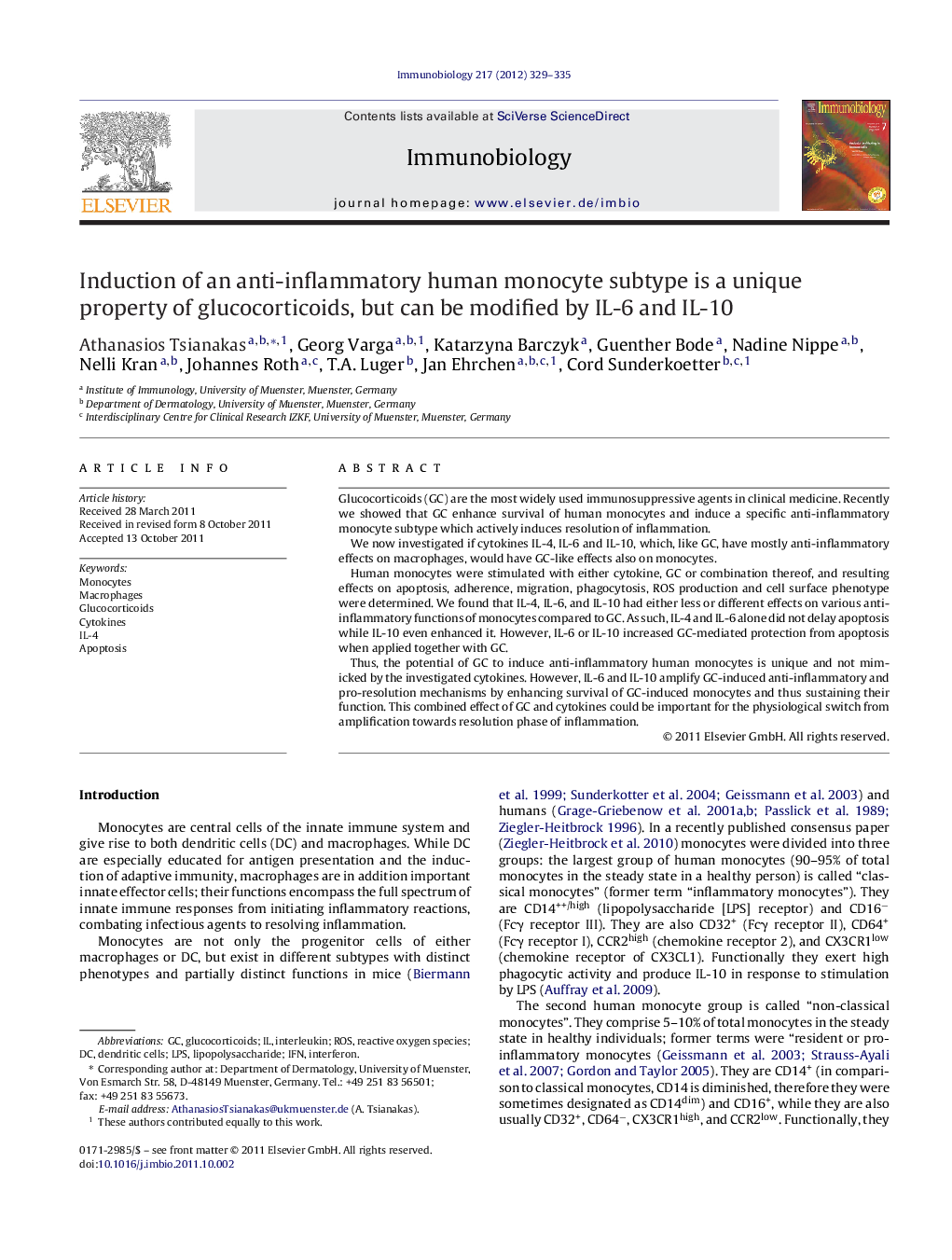| Article ID | Journal | Published Year | Pages | File Type |
|---|---|---|---|---|
| 2183768 | Immunobiology | 2012 | 7 Pages |
Glucocorticoids (GC) are the most widely used immunosuppressive agents in clinical medicine. Recently we showed that GC enhance survival of human monocytes and induce a specific anti-inflammatory monocyte subtype which actively induces resolution of inflammation.We now investigated if cytokines IL-4, IL-6 and IL-10, which, like GC, have mostly anti-inflammatory effects on macrophages, would have GC-like effects also on monocytes.Human monocytes were stimulated with either cytokine, GC or combination thereof, and resulting effects on apoptosis, adherence, migration, phagocytosis, ROS production and cell surface phenotype were determined. We found that IL-4, IL-6, and IL-10 had either less or different effects on various anti-inflammatory functions of monocytes compared to GC. As such, IL-4 and IL-6 alone did not delay apoptosis while IL-10 even enhanced it. However, IL-6 or IL-10 increased GC-mediated protection from apoptosis when applied together with GC.Thus, the potential of GC to induce anti-inflammatory human monocytes is unique and not mimicked by the investigated cytokines. However, IL-6 and IL-10 amplify GC-induced anti-inflammatory and pro-resolution mechanisms by enhancing survival of GC-induced monocytes and thus sustaining their function. This combined effect of GC and cytokines could be important for the physiological switch from amplification towards resolution phase of inflammation.
